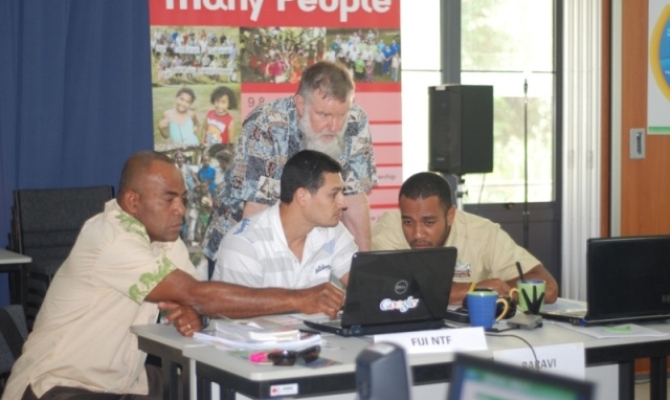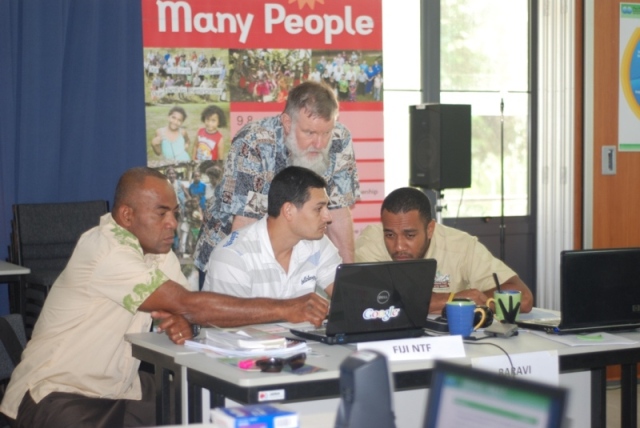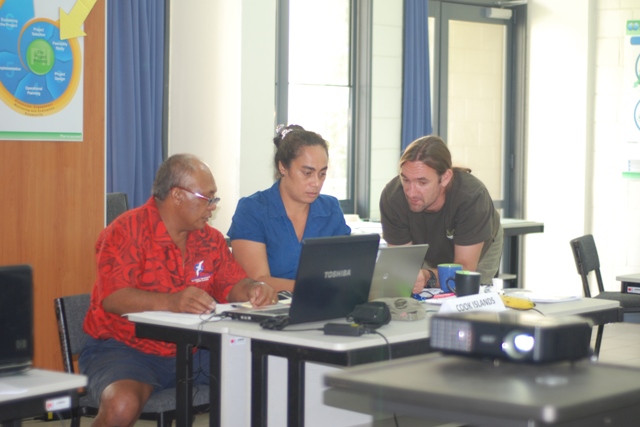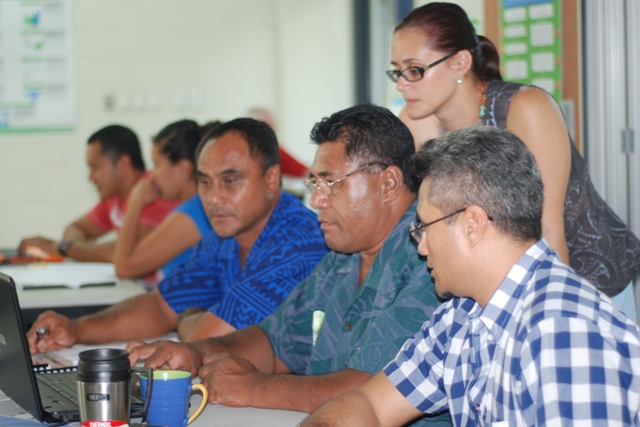
Invasive plants are threats to food and economic security as they can take over areas used for pasture and crop cultivation as well as food gardens. Decreased production caused by weeds, combined with the cost of 
Invasive plants are also threats to native plants and animals in forested areas. Reduced native biodiversity and negative effects on natural ecosystems can alter local ecosystem services such as water supply and medicinal plants which can affect production and cultural harvests in communities.
Invasive trees can grow taller than a native tree canopy and shade out the forest. Vines can grow over trees and smother them, preventing birds from nesting and killing native trees.
Other plants change the mineral balance and physical structure of the soil which can make it hard for native trees to grow. Some of those minerals in the soil can be washed out into streams and affect water quality and the aquatic life in waterways.
To support Pacific countries with managing the threat of invasive plants, the Pacific Invasives Initiative (PII) has worked with the New Zealand Department of Conservation, Secretariat of the Pacific Regional Environment Programme and training consultants to develop an intensive training course. The training will support those countries that have GEF-PAS invasive species projects.
The course will help prioritise the most important plants for action, develop and implement a project to manage 
In response to a request from Samoa's Environment & Conservation Division of the Ministry of Natural Resources and the Environment (MNRE), the Pacific Invasives Initiative is delivering the training course at the SPREP offices in Apia (from May 15-25).
Teams from Reserves and Forestry Divisions of MNRE, the National Environment Service of the Cook Islands, the National Trust of Fiji and the Niue Department of Environment and Department of Forestry and Fisheries are attending the Invasive Plant Management training course.
PII is grateful to the New Zealand Government's Aid Programme and the Critical Ecosystem Partnership Fund for providing grant funding for the development of the training course and resource kit and the delivery of the course in Samoa.
When opening the training on behalf of the Government of Samoa, Taulealea Lava'asa, CEO of MNRE said "Pacific countries are suffering the consequences of unintentional and intentional introductions and Samoa is spending considerable resources on the restoration of Mt Vaea, eradicating rattan palm and managing 
When welcoming participants to the SPREP campus, David Sheppard, Director-General of SPREP said "Invasive species are a major biodiversity issue for SPREP. Invasives are causing an extreme loss of species and for small island nations, this is a serious problem and we have to act quickly."
Souad Boudjelas, Programme Manager of PII said "The Pacific region is making progress on addressing the issue of invasive species. However, much remains to be done in the areas of biosecurity at both international borders and within countries and eradication or control of harmful invasives given the scope and complexity of the invasive species problem".
For more details, contact:
Souad Boudjelas, Pacific Invasives Initiative, +64 9 923 6805, E: [email protected]
Faleafaga Toni Tipamaa, Environment & Conservation Division of the Ministry of Natural Resources and the Environment, +685 67208, E: [email protected]